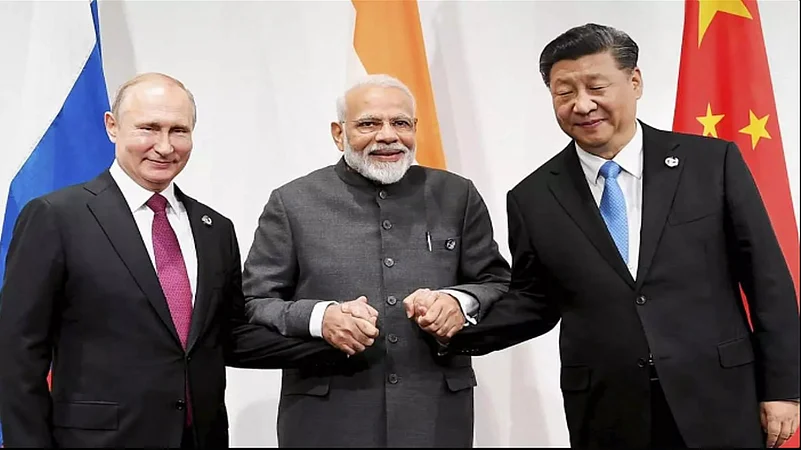India, China and Russia are putting on a rare show of diplomatic unity in Tianjin this weekend, where leaders have gathered for the Shanghai Cooperation Organisation (SCO) summit. Against the backdrop of US President Donald Trump’s escalating tariff measures and sanctions, the three powers are casting the SCO as a testament of non-Western alliances joining hands in a shifting global order.
Chinese President Xi Jinping is hosting Prime Minister Narendra Modi, Russian President Vladimir Putin and more than 20 other leaders for two days of talks over the weekend. For Modi, it is a significant moment as it marks his first visit to China since 2018, arriving fresh from securing a $68 billion investment pledge in Tokyo.
His presence points towards an easing of India–China tensions, which peaked after the 2020 Galwan Valley clashes and also underlines New Delhi’s pushback against Washington’s 50% tariffs on Indian exports and pressure to curb Russian oil imports.
Meanwhile, Putin is using the summit to highlight Moscow’s pivot towards Asia as Western sanctions pile up. The Kremlin confirmed he will meet separately with Turkish President Recep Tayyip Erdoğan on Ukraine and Iranian President Masoud Pezeshkian on Tehran’s nuclear programme, signalling the SCO’s growing role as a platform for delicate geopolitical issues.
Together, China, Russia and India are presenting the SCO as an alternative power centre. The bloc’s 10 members, including Pakistan, Iran, Belarus and Central Asian states, account for 40% of the world’s population and hold vast energy reserves. Sixteen partner and observer nations, from Saudi Arabia to NATO member Turkey, are also in attendance, widening its reach.
Still, expectations remain measured. Analysts say symbolism will outweigh substance, with India and Pakistan sharing a stage for the first time since the Pahalgam terror attack and Operation Sindoor. The optics, however, are telling, with Xi projecting China as a stabiliser, Putin defying isolation, and Modi balancing US resistance with pragmatic outreach to Beijing.
The summit concludes Monday, after which several leaders will travel to Beijing for a military parade marking 80 years since the end of World War II.




























